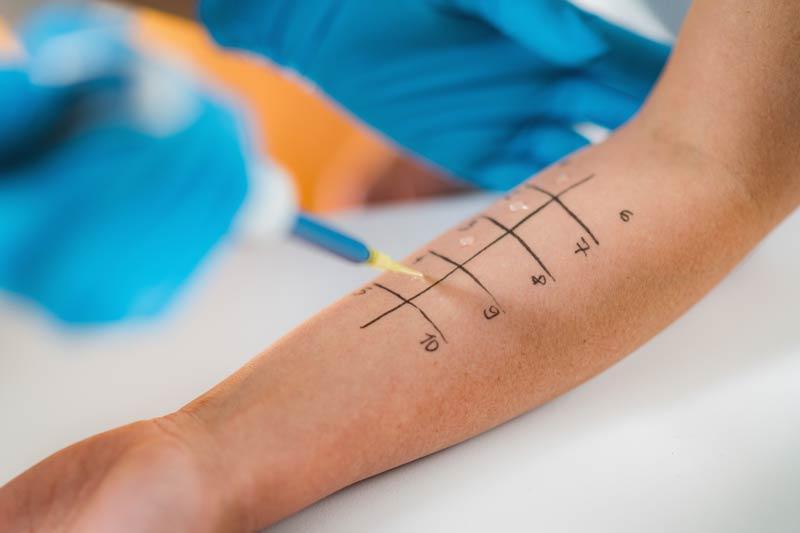Allergy Testing: Accurate Diagnosis for Better Health and Relief

Allergies affect millions of people worldwide, disrupting daily life with uncomfortable and sometimes severe symptoms. From seasonal sneezing fits caused by pollen to life-threatening reactions from certain foods or insect stings, allergies can take many forms. The key to managing these conditions effectively lies in accurate diagnosis—and that’s where allergy testing comes in.
Understanding Allergies
An allergy occurs when your immune system overreacts to a typically harmless substance, known as an allergen. Instead of ignoring the substance, your body treats it as a threat and releases chemicals such as histamine. This immune response leads to symptoms such as:
- Sneezing, runny or blocked nose
- Itchy, watery eyes
- Skin rashes, hives, or eczema
- Swelling of lips, tongue, or throat
- Wheezing, coughing, or shortness of breath
- Digestive issues after eating certain foods
Allergies can affect anyone—children, adults, or seniors—and the severity can range from mild discomfort to life-threatening anaphylaxis. Because symptoms often overlap with other conditions, accurate allergy testing is vital for proper diagnosis and treatment.
Why Allergy Testing Matters
Many people spend years trying to manage recurring symptoms without understanding the root cause. They might blame the wrong triggers, avoid unnecessary foods, or rely on over-the-counter medications for relief. Allergy testing removes the guesswork.
Key Benefits of Allergy Testing:
- Accurate Diagnosis: Identifies the specific allergens causing your reactions.
- Targeted Treatment: Helps create a personalized management plan.
- Prevention of Severe Reactions: Crucial for individuals at risk of anaphylaxis.
- Improved Quality of Life: Reduces symptoms, leading to more energy, better sleep, and overall comfort.
- Avoids Unnecessary Restrictions: Ensures you don’t cut out foods or activities unnecessarily.
Who Should Consider Allergy Testing?
Allergy testing is recommended if you experience:
- Persistent nasal congestion, sneezing, or sinus infections
- Seasonal symptoms that worsen during spring or fall
- Chronic skin issues like eczema or hives
- Unexplained digestive problems after eating certain foods
- Reactions to insect stings, such as swelling or breathing difficulties
- Family history of allergies or asthma
If symptoms interfere with your daily life or worsen over time, testing provides the clarity needed for long-term relief.
Types of Allergy Testing
There are several methods to identify allergies. Your healthcare provider will recommend the right test based on your symptoms, medical history, and suspected triggers.
1. Skin Prick Test (SPT)
- A small drop of allergen extract is placed on your skin, usually on the forearm or back.
- The skin is gently pricked so the allergen can enter the top layer.
- If allergic, a red, itchy bump appears within 15–20 minutes.
- Commonly used for environmental (pollen, dust mites, pet dander) and some food allergies.
- Quick, safe, and provides immediate results.
2. Intradermal Test
- Involves injecting a small amount of allergen just under the skin.
- More sensitive than a skin prick test, it is often used when SPT results are inconclusive.
- Commonly used for diagnosing insect stings or medication allergies.
3. Patch Test
- Adhesive patches containing suspected allergens are placed on the skin (usually the back).
- Worn for 48 hours before evaluation.
- Helps diagnose contact dermatitis caused by allergens like metals, fragrances, or chemicals.
4. Blood Tests (Specific IgE or RAST Test)
- A blood sample is taken to measure allergy-related antibodies (IgE).
- Useful for people who cannot undergo skin testing due to skin conditions or medications.
- Provides reliable results for food, environmental, and insect allergies.
- Results may take a few days since they are processed in a lab.
Preparing for Allergy Testing
Before undergoing allergy testing, your provider will:
- Review your medical history and family history of allergies.
- Discuss your symptoms and when they occur.
- Ask about medications you’re taking, since antihistamines and certain prescriptions may interfere with test results.
- Advise you to stop antihistamines for several days before the test (only under doctor guidance).
What to Expect During Allergy Testing
- Skin Tests: Usually take 20–40 minutes, with results available almost immediately. Mild itching or redness may occur if you’re allergic.
- Blood Tests: Quick and simple; only require a blood draw. Results come from a lab within a few days.
- Patch Tests: Require multiple visits—one for patch application, another for removal, and a final check after 72–96 hours.
Interpreting the Results
Your healthcare provider will explain which allergens triggered a response and how severe the reaction was. From there, you can work together on a personalized management plan.
Possible Treatment Options:
- Avoidance: Reducing exposure to known allergens (using air filters, avoiding certain foods, etc.).
- Medications: Antihistamines, decongestants, nasal sprays, or eye drops to manage symptoms.
- Allergen Immunotherapy (Allergy Shots or Sublingual Tablets): Long-term treatment that gradually reduces sensitivity to allergens.
- Lifestyle Adjustments: Changes in diet, home cleaning routines, or outdoor activity habits.
Living a Healthier, Symptom-Free Life
Allergy testing is more than a diagnostic tool—it’s the foundation for effective management and lasting relief. By identifying your unique triggers, you can take proactive steps to prevent symptoms, improve overall health, and enjoy life without constant worry.
Imagine being able to enjoy the outdoors without fear of pollen, eat confidently without worrying about hidden allergens, or simply breathe easier at night. With accurate testing and the right treatment, all of this becomes possible.
Conclusion
Allergy testing empowers you with knowledge—knowledge about your body, your triggers, and how to take control of your health. Whether you’re dealing with seasonal allergies, unexplained skin issues, or food sensitivities, testing provides the clarity needed to move from discomfort to relief.
- Art
- Causes
- Crafts
- Dance
- Drinks
- Film
- Fitness
- Food
- Jogos
- Gardening
- Health
- Início
- Literature
- Music
- Networking
- Outro
- Party
- Religion
- Shopping
- Sports
- Theater
- Wellness



